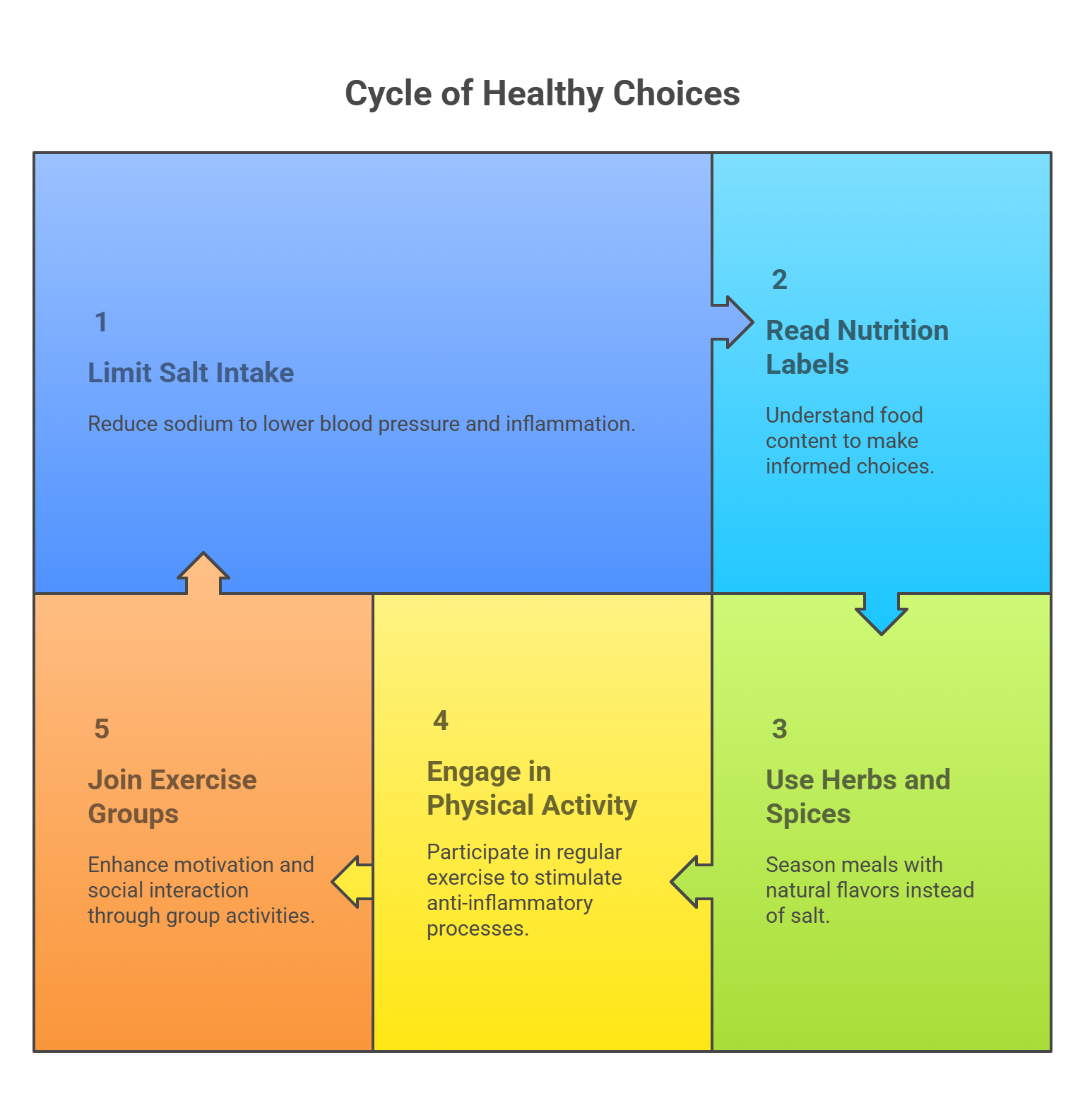
Understanding Inflammation: Why Seniors Should Pay Attention
Inflammation can be a silent yet significant player in many chronic diseases, especially among seniors. Studies reveal that around 60% of these diseases, including heart disease and arthritis, are tied to low-grade inflammation driven by everyday dietary choices. This article dives into the ten foods that can fuel inflammation, showing how simple dietary adjustments could help seniors live more comfortably and actively.
In SENIORS, Stop Inflammation NOW! The Foods Every Senior Must Avoid!, the discussion dives into how common foods contribute to inflammation, prompting us to explore these meticulously and provide actionable insights.
Foods to Avoid: The Top Inflammation Promoters
There’s no need to suffer from stiffness and achy joints when the solution could be as simple as examining our plates. The first on the list is processed meats—think bacon or hot dogs. These are loaded with harmful preservatives that can irritate the gut and trigger inflammation responses in the body. If you're craving meat, consider swapping them for grilled chicken or fish, which are far healthier choices.
Next, refined grains, like those fluffy white pasta or bread rolls we love, rank high on the inflammation list too. These foods are stripped of essential nutrients, causing blood sugar spikes that can lead to inflammatory responses. Switching to whole grains not only keeps blood sugar steady but also provides fiber that benefits overall health.
Many may not realize that sugary drinks also contribute substantially to inflammation. Popular soft drinks and sweetened teas inundate the body with sugar, triggering insulin spikes. Instead, hydrate with water infused with fruits or opt for herbal teas.
Healthy Choices Matter: The Path to Better Health
When aiming to manage inflammation, dietary choices aren't the only ones to consider. Limiting salt intake is crucial as excessive sodium can raise blood pressure and promote inflammation. Start reading nutrition labels and opt for meals seasoned with herbs and spices instead of salt.
The importance of regular physical activity cannot be overstated. It might seem easy to skip exercise due to a busy lifestyle, but engaging in moderate activities can stimulate anti-inflammatory processes in the body. Simple activities like walking or joining a senior-friendly exercise group can vastly improve your health.

Mindfulness as a Tool Against Inflammation
In addition, practicing mindfulness and managing stress can create an anti-inflammatory response. Stress hormones, when unchecked, can fuel inflammation, so integrating simple techniques like deep breathing or yoga into your routine can provide immense benefits for both mental and physical health.
Invest in Your Health: Small Changes Yield Big Results
Fortunately, correcting dietary and lifestyle choices doesn’t have to be overwhelming. Making small shifts—such as incorporating omega-3-rich foods or ensuring a good night’s sleep—can significantly impact your health. As you prioritize these adjustments, you may just find your joints feeling less stiff and your energy levels rising.
In this era of health consciousness, focusing on holistic solutions offers an excellent pathway to wellness. If you're looking to enhance your quality of life, consider starting with the simple advice in this article to reduce inflammation and reclaim your comfort. Remember, every step you take toward better nutrition and self-care is a step toward better health.
Stay informed and make intentional choices that meet your body's needs. The combination of mindful living and wise eating can lead to a vibrant, fulfilling life, proving that it’s never too late to embrace the advantages of holistic medicine.
Disclaimer: The information provided on this website is for general informational purposes only and should not be considered medical advice, diagnosis, or treatment. Always consult a qualified healthcare professional before making any decisions or taking actions related to your health, including but not limited to medical conditions, treatments, diets, supplements, or exercise programs. The content on this site is not intended to replace professional medical guidance. The website and its authors are not responsible for any actions taken based on the information provided. Ask your doctor or licensed medical professional.
 Add Row
Add Row  Add
Add 




 Add Row
Add Row  Add
Add 

Write A Comment